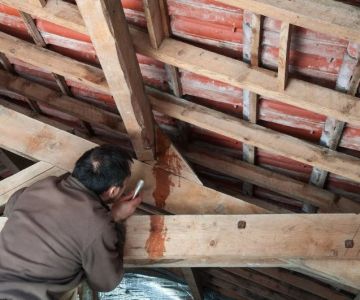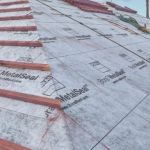
What is a Roofing Project Milestone Payment Schedule? Standard Practices
- 1-Understanding Roofing Project Payment Schedules
- 2-Why Milestone Payment Schedules Are Important
- 3-Common Milestone Payment Structures in Roofing Projects
- 4-How to Ensure Fair Payment Terms for Your Roofing Project
- 5-How Milestone Schedules Benefit Homeowners and Contractors
- 6-Where to Find Reliable Roofing Contractors
1-Understanding Roofing Project Payment Schedules
When embarking on a roofing project, one of the most important aspects to consider is how the payment structure is set up. A milestone payment schedule is a common practice in the roofing industry, ensuring that both homeowners and contractors are on the same page regarding the project's financial aspects. This payment structure divides the total cost of the roofing project into several milestones, with each payment due upon the completion of specific phases of the work.
Understanding how these payment schedules work can help prevent disputes and ensure that the project proceeds smoothly. In this article, we will explore what a milestone payment schedule is, its benefits, and how it can be structured to ensure fairness for both parties involved in a roofing project.
2-Why Milestone Payment Schedules Are Important
Milestone payment schedules offer a transparent and organized approach to managing the financial side of roofing projects. For both homeowners and contractors, these schedules have several advantages:
- Ensures Progress Payments: A milestone payment schedule allows the contractor to receive payments as the work progresses, ensuring that they are compensated fairly for their efforts at each stage of the project.
- Reduces Financial Risk: For homeowners, milestone payments reduce the risk of paying the full amount upfront without seeing progress. Payments are tied to specific deliverables, giving homeowners more control over the project's completion.
- Improves Accountability: By structuring the project into stages, both parties have clear expectations for the work to be done. Contractors are more likely to stay on schedule, and homeowners can hold them accountable for any delays or issues that arise.
Overall, milestone payments create a balance of trust and accountability between homeowners and contractors, providing clarity and a structured approach to the financial aspects of roofing projects.

Top Nj Roofing Repair & Replacement
Cliffside ParkBergen CountyNew Jersey
231 Columbus Pl, Cliffside Park, NJ 07010, USA
3-Common Milestone Payment Structures in Roofing Projects
Milestone payment structures can vary depending on the scope of the roofing project and the agreement between the homeowner and the contractor. However, the most common milestones in roofing projects typically include the following:
- Initial Deposit: A deposit is often required before the work begins, typically covering the cost of materials and initial labor. This deposit can range from 10% to 30% of the total project cost, depending on the size and complexity of the job.
- Completion of Tear-off and Preparation: Once the old roof is removed and the surface is prepared for the new materials, a milestone payment is usually due. This stage marks significant progress in the project.
- Installation of New Roofing Materials: Another milestone payment is typically made after the new roofing materials are installed. At this point, the roof is usually covered, and the project is halfway complete.
- Final Inspection and Completion: The final payment is usually made after the project is completed, and the homeowner has inspected the work. This payment is typically the largest portion and is made once the contractor has addressed any final concerns or touch-ups.
These milestones help to break the project into manageable phases, ensuring that both parties are satisfied with the progress before moving on to the next stage.
4-How to Ensure Fair Payment Terms for Your Roofing Project
When agreeing on a milestone payment schedule, it’s essential to ensure that the terms are fair for both you and the contractor. Here are some tips to ensure that the payment schedule is balanced and transparent:
- Establish Clear Milestones: Work with the contractor to define clear, measurable milestones for the project. Each milestone should be tied to specific deliverables, such as material delivery, installation, and completion.
- Agree on Payment Percentages: The percentage for each payment should be proportionate to the value of the work completed at each stage. For example, the final payment should reflect the completion of the project, while initial deposits should cover upfront material costs.
- Include Holdback for Final Inspection: A holdback clause is often included to ensure that any outstanding issues are addressed before the final payment is made. This allows homeowners to inspect the work and ensure it meets their expectations.
- Get Everything in Writing: To avoid any misunderstandings, make sure that the agreed-upon payment schedule is outlined in the contract. Both parties should sign the contract, acknowledging the payment terms and schedule.
By establishing clear and fair payment terms from the beginning, you can help ensure that both you and the contractor are aligned throughout the roofing project.
5-How Milestone Schedules Benefit Homeowners and Contractors
Milestone payment schedules offer benefits to both homeowners and contractors, making them a preferred option for many roofing projects. Here’s how they benefit both parties:
- For Homeowners: Homeowners benefit from knowing they only pay for work that has been completed. It also helps manage cash flow, as payments are spaced out throughout the project. Additionally, having clear milestones means homeowners can monitor progress and ensure the job is being completed to their standards.
- For Contractors: Contractors benefit from a consistent cash flow throughout the project, which helps cover the costs of labor and materials. Milestone payments also create a structure for the project, allowing contractors to plan their work efficiently and avoid delays.
A well-structured milestone payment schedule creates a sense of mutual trust and cooperation, allowing both parties to work together smoothly toward the successful completion of the roofing project.
6-Where to Find Reliable Roofing Contractors
Finding a trustworthy contractor who can adhere to a milestone payment schedule and deliver quality work is key to a successful roofing project. Here are some ways to find reliable roofing contractors:
- Online Directories: Websites like Angie's List, HomeAdvisor, and Yelp can provide listings of top-rated roofing contractors, complete with customer reviews and ratings.
- Referrals from Friends or Family: Asking friends, family, or neighbors for recommendations is one of the best ways to find a reputable roofing contractor who has a track record of successful projects.
- Local Roofing Companies: Visit local roofing companies or check their websites for testimonials, portfolio work, and certifications. Companies like BeachCo Roofing Hub specialize in quality roofing and can help you with any aspect of your roofing project.
By researching reputable contractors and ensuring that they are familiar with milestone payment schedules, you can feel confident that your roofing project will proceed smoothly and be completed on time.








 Cousins Construction3.0 (18 reviews)
Cousins Construction3.0 (18 reviews) A Marten Roofing Co5.0 (3 reviews)
A Marten Roofing Co5.0 (3 reviews) Cabrera Brothers Roofing Company4.0 (53 reviews)
Cabrera Brothers Roofing Company4.0 (53 reviews) STORMGUARD ROOFING0.0 (0 reviews)
STORMGUARD ROOFING0.0 (0 reviews) Odyssey Home Remodeling4.0 (31 reviews)
Odyssey Home Remodeling4.0 (31 reviews) Smart Care Exteriors LLC5.0 (8 reviews)
Smart Care Exteriors LLC5.0 (8 reviews) The Cost of Roof Moss Removal and Prevention Treatments: A Complete Guide
The Cost of Roof Moss Removal and Prevention Treatments: A Complete Guide How to Install Roof Snow Fences to Control Drifting
How to Install Roof Snow Fences to Control Drifting The Cost of a New Roof with a Class 4 Impact-Resistant Rating
The Cost of a New Roof with a Class 4 Impact-Resistant Rating How to Properly Install Roof Snow Fences to Prevent Drifting
How to Properly Install Roof Snow Fences to Prevent Drifting How to Repair a Roof Valley: Why This Critical Area is Prone to Leaks
How to Repair a Roof Valley: Why This Critical Area is Prone to Leaks Best Practices for Choosing the Right Roofing Underlayment for Cold Climates
Best Practices for Choosing the Right Roofing Underlayment for Cold Climates